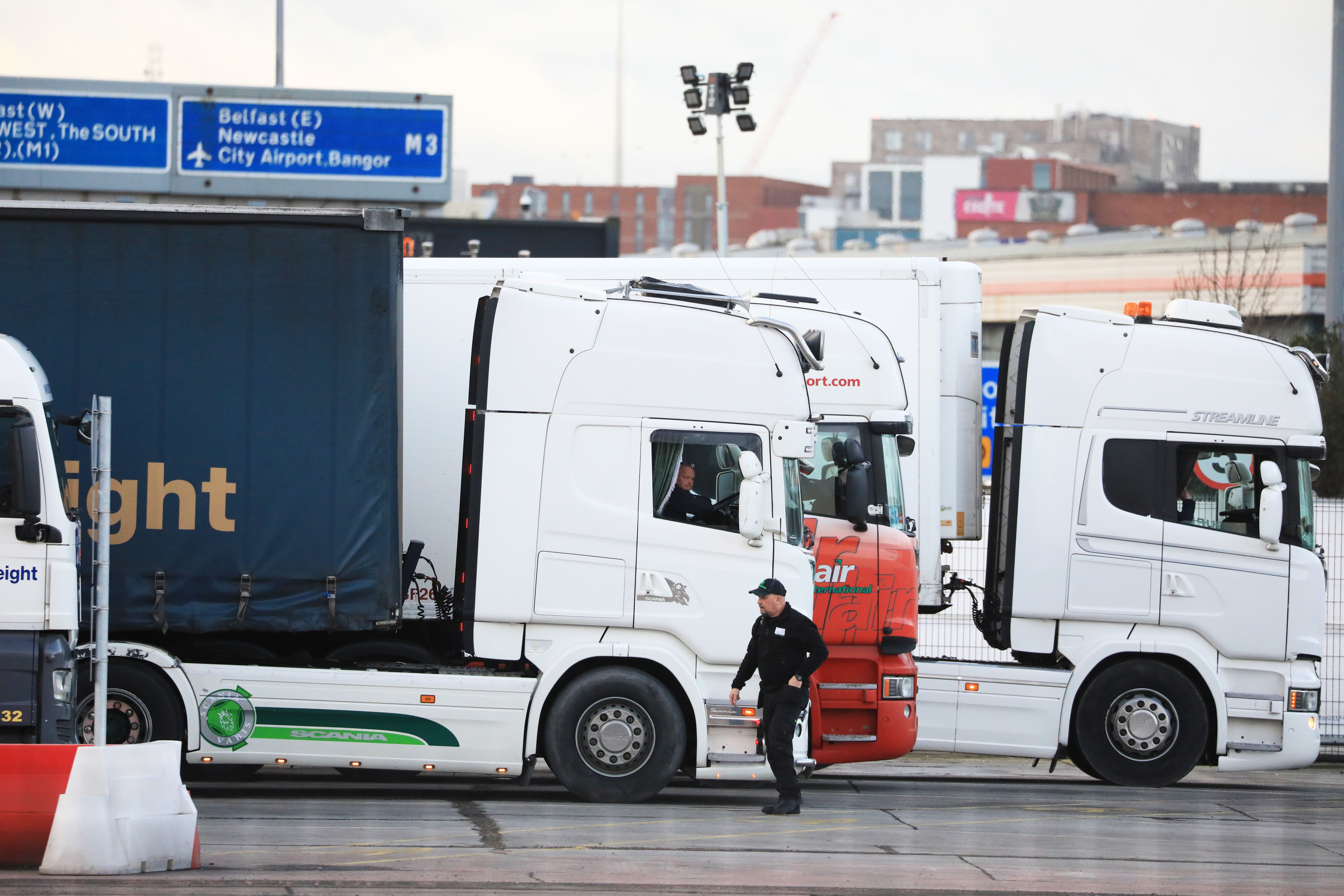UK Government spent almost £200,000 defending NI Protocol legal challenges
The Supreme Court unanimously ruled last month the controversial post-Brexit trading arrangements in Northern Ireland were lawful.

Your support helps us to tell the story
From reproductive rights to climate change to Big Tech, The Independent is on the ground when the story is developing. Whether it's investigating the financials of Elon Musk's pro-Trump PAC or producing our latest documentary, 'The A Word', which shines a light on the American women fighting for reproductive rights, we know how important it is to parse out the facts from the messaging.
At such a critical moment in US history, we need reporters on the ground. Your donation allows us to keep sending journalists to speak to both sides of the story.
The Independent is trusted by Americans across the entire political spectrum. And unlike many other quality news outlets, we choose not to lock Americans out of our reporting and analysis with paywalls. We believe quality journalism should be available to everyone, paid for by those who can afford it.
Your support makes all the difference.Nearly £200,000 was spent by the UK Government defending two legal challenges to the Northern Ireland Protocol.
One of the cases was brought by unionist politicians and Brexiteers including Traditional Unionist Voice (TUV) leader Jim Allister, former Brexit Party MEP Ben Habib and Baroness Kate Hoey, and the other by a loyalist pastor from Belfast, Clifford Peeples.
The Westminster administration’s legal costs were disclosed in a response to a parliamentary written question by former Labour MP Lady Hoey, who sits as a non-affiliated peer in the upper chamber.
The Government has spent £196,567 on fees associated with the legal challenges of Clifford Peeples and Jim Allister and others
Northern Ireland Office minister Lord Caine said: “The Government has spent £196,567 on fees associated with the legal challenges of Clifford Peeples and Jim Allister and others.”
The Supreme Court unanimously ruled last month the controversial post-Brexit trading arrangements in Northern Ireland were lawful.
The joint legal challenge had previously been dismissed by the High Court and Court of Appeal in Belfast.
Attempts to restore powersharing at Stormont have so far failed because of a boycott by the DUP in protest at the protocol, which created trade barriers in the Irish Sea.
The UK and EU have now agreed the Windsor Framework as a way to cut the red tape caused by the existing arrangement.
However, the DUP has said it will vote on Wednesday against the first aspect of the revamped deal to be considered by Parliament, the Stormont brake, which the Government itself has suggested will be indicative of support for the overall agreement.
The mechanism aims to allow assembly members to flag their concerns about new EU legislation that will affect the region.
While the DUP says the framework has gone some way to address its concerns about the protocol, it says some significant problems remain.